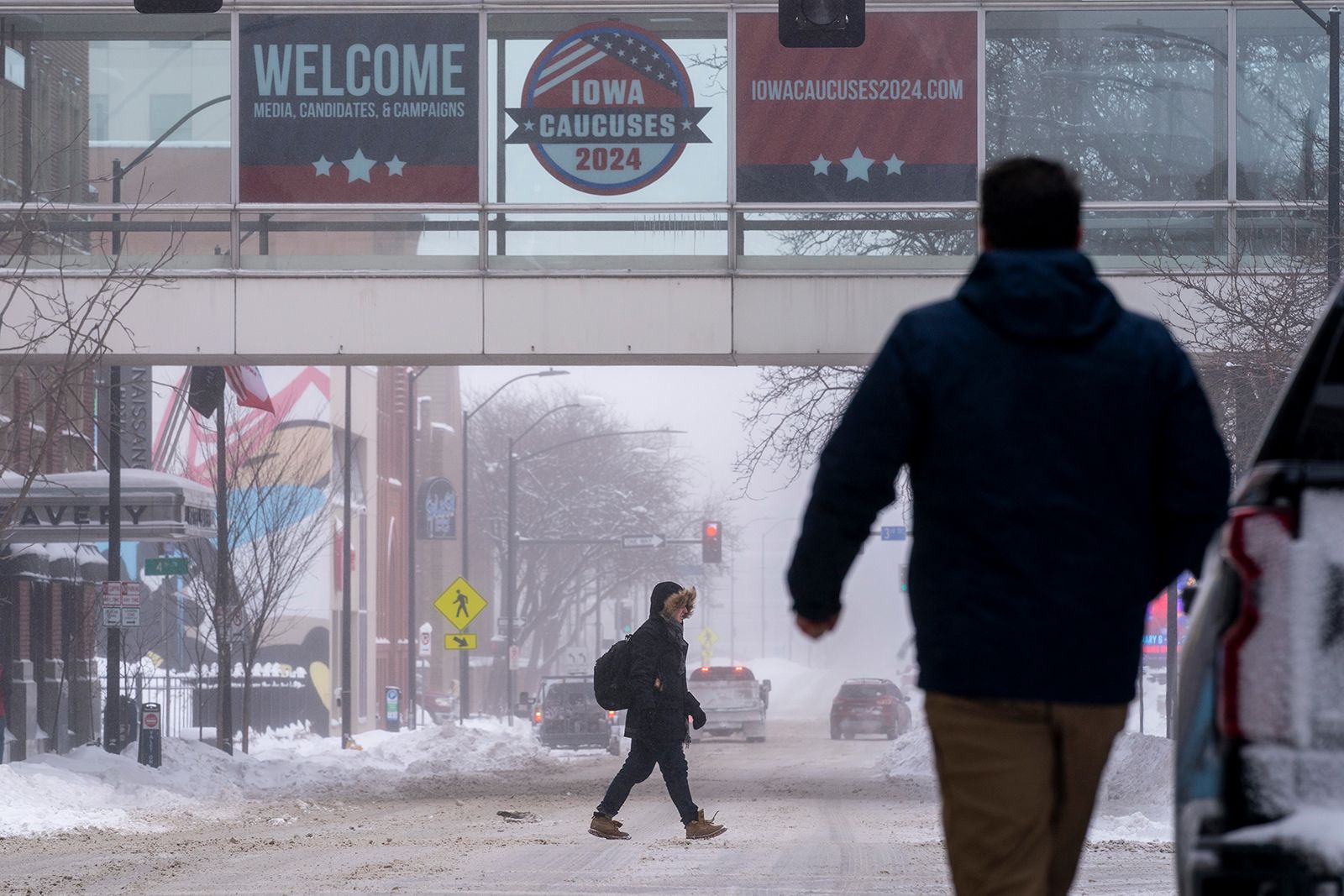Despite the record-breaking Arctic chill, Iowa Republicans are ready to initiate the 2024 presidential nomination process for their party with Monday night’s caucuses. The freezing temperatures have led to a slowdown in the campaign activities of key contenders such as former President Donald Trump, ex-South Carolina Governor Nikki Haley, and Florida Governor Ron DeSantis.
The first verdict of the 2024 election will be delivered by Iowa voters, who will decide which Republican candidate should challenge President Joe Biden in the November elections.
Five Key Factors to Watch in the Iowa Caucuses
1. Trump’s Dominance
The question isn’t just whether Trump will win, but whether he will do so convincingly enough to show that the GOP electorate isn’t looking for an alternative. The final Des Moines Register/NBC News/Mediacom poll found Trump leading with 48% support, close to breaking the 50% threshold. Despite this, the path to nomination may become more challenging post-Iowa.
2. The Race for Second Place
The candidate who secures the second position could significantly influence the race. Haley and DeSantis are vying for this spot, with major donors and party officials keenly observing to gauge Trump’s vulnerability. A clear second-place finish could pave the way for a one-on-one race against Trump.
3. The Impact of Iowa on the Field
Historically, the Iowa caucuses have been instrumental in narrowing down the field of presidential contenders. A disappointing finish for DeSantis, who has invested heavily in Iowa, could potentially alter the dynamics of the race.
4. Trump’s Evangelical Support
Trump’s strong support among evangelical voters has been a defining factor in past elections. Iowa will test whether any other Republican can break this stronghold. The voting pattern of this crucial bloc could provide early indications of the likely outcomes in South Carolina, where a significant portion of the GOP electorate identifies as evangelical.
5. The Importance of Organizing
Both Trump and DeSantis have been emphasizing their organizational strength in Iowa. However, with presidential races becoming increasingly nationalized, the effectiveness of ground-level campaigning and door-to-door canvassing is being questioned. The influence of national television and conservative media has been a significant factor in shaping the narrative of the race.

